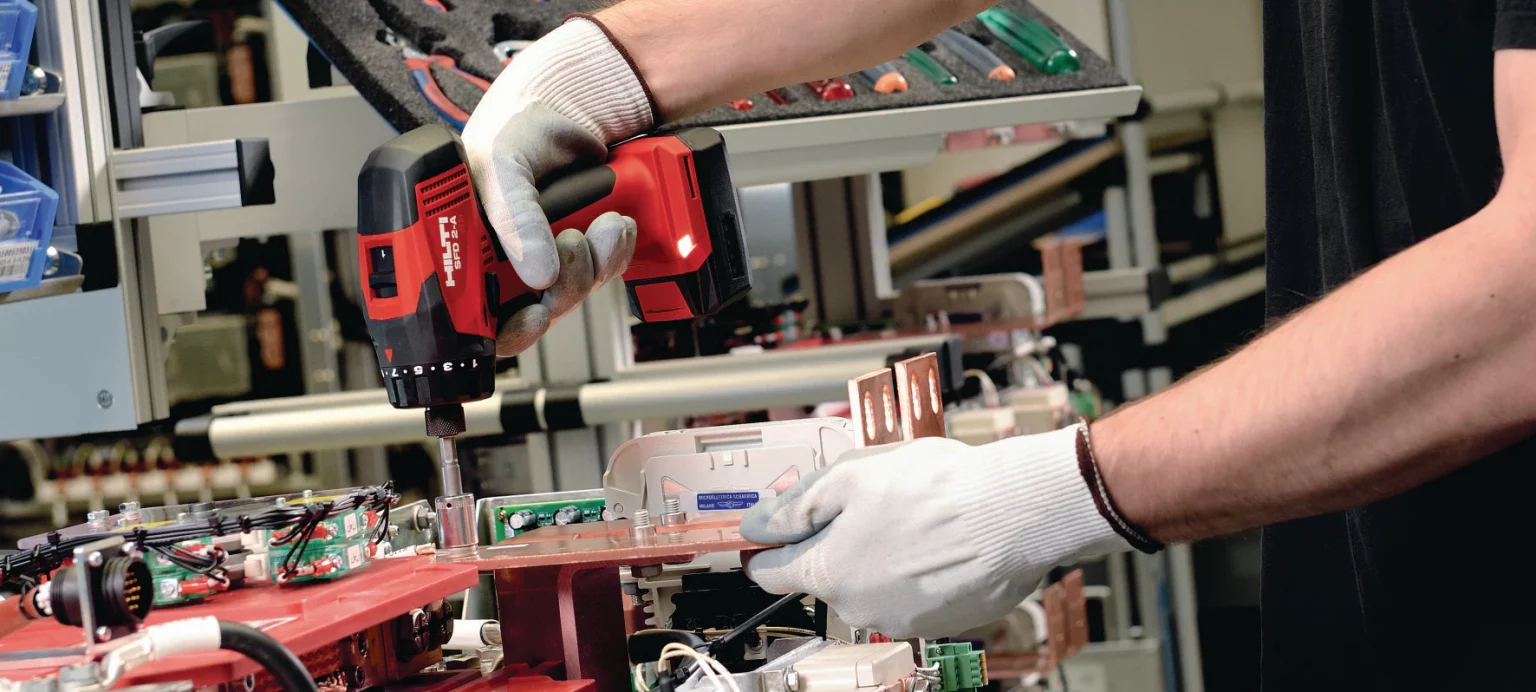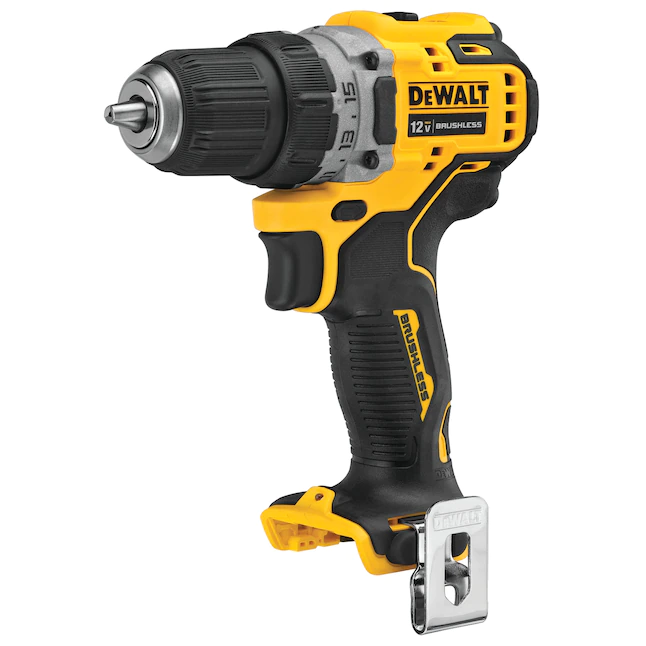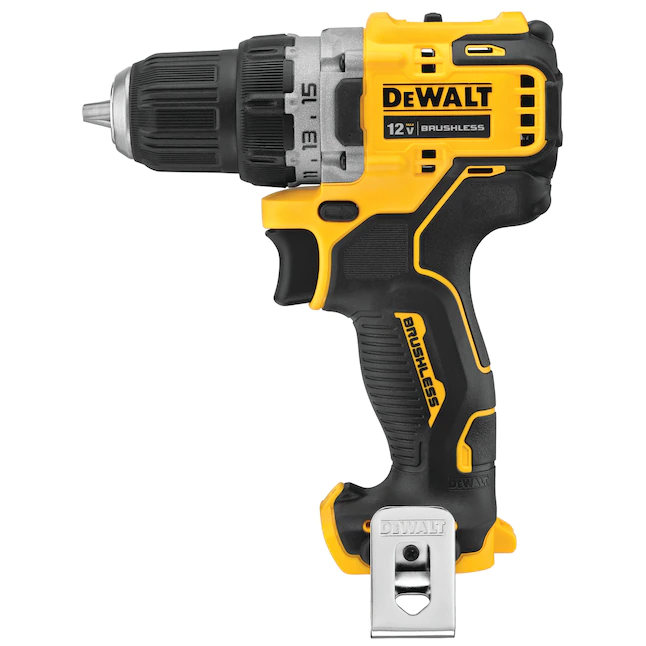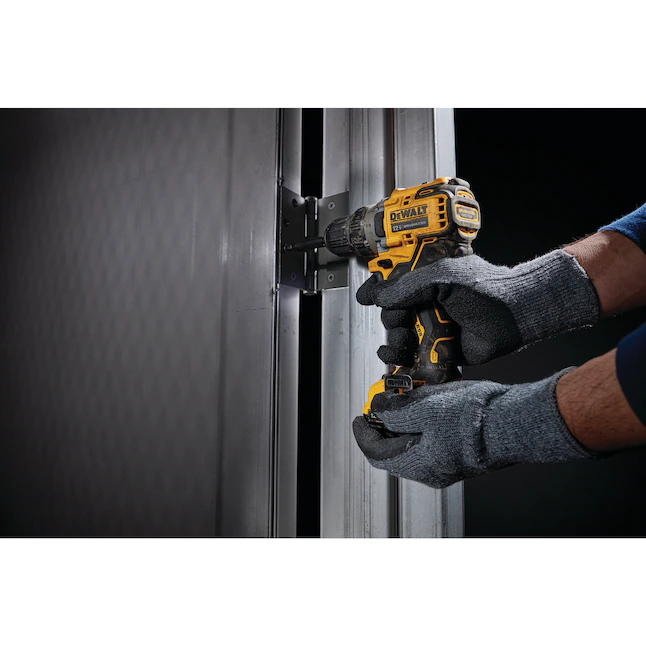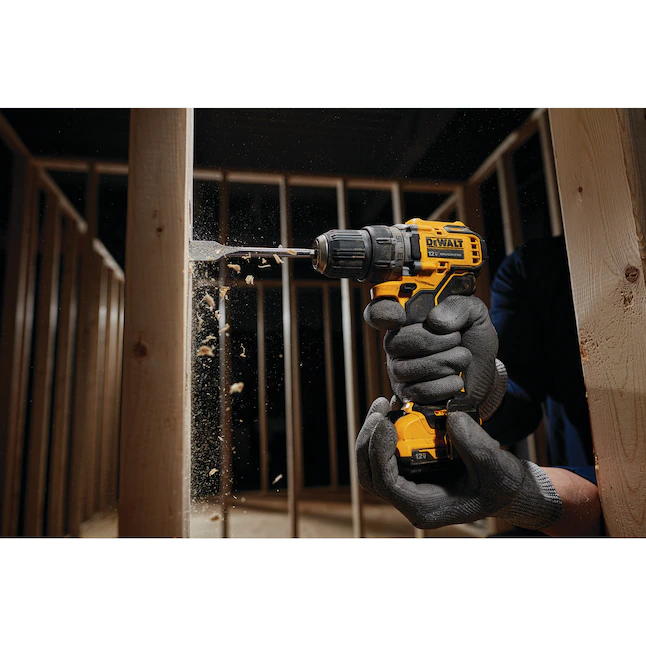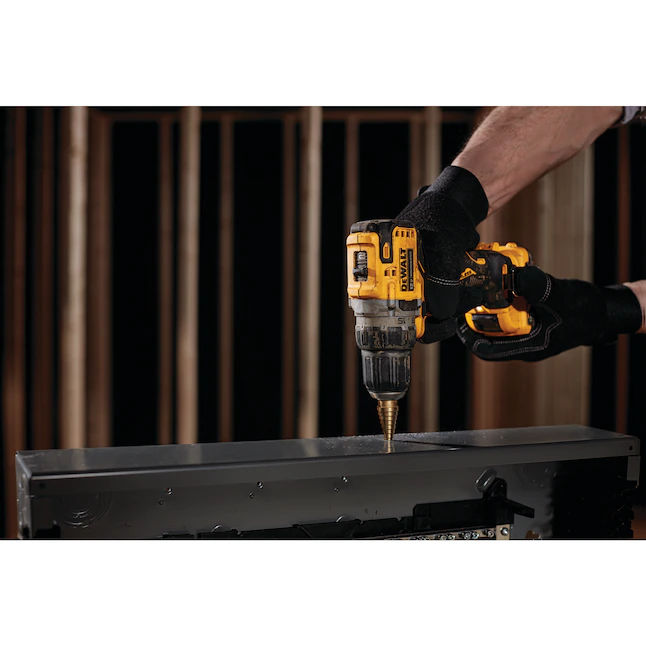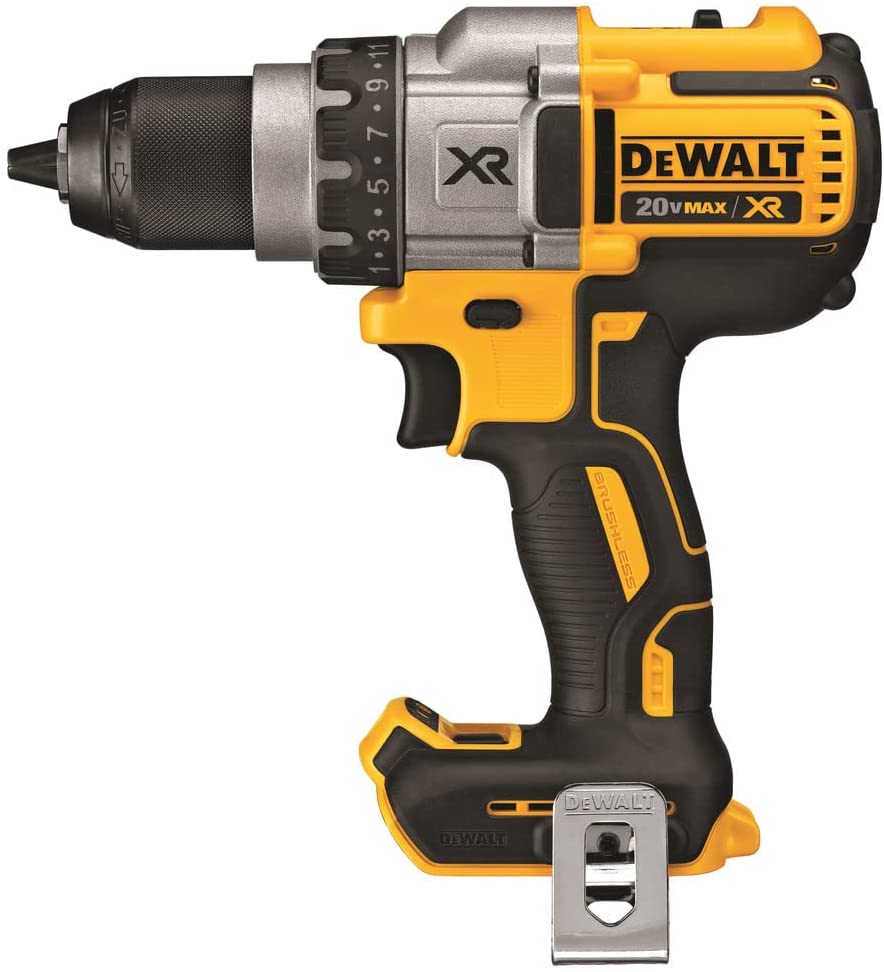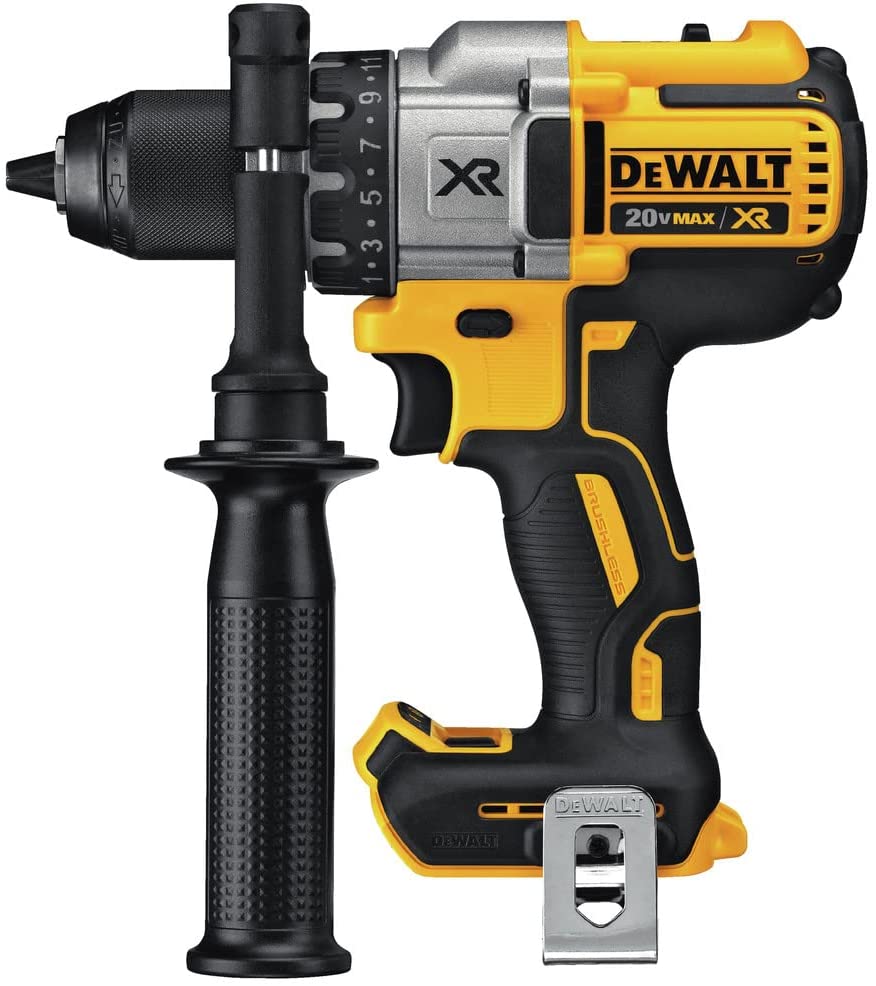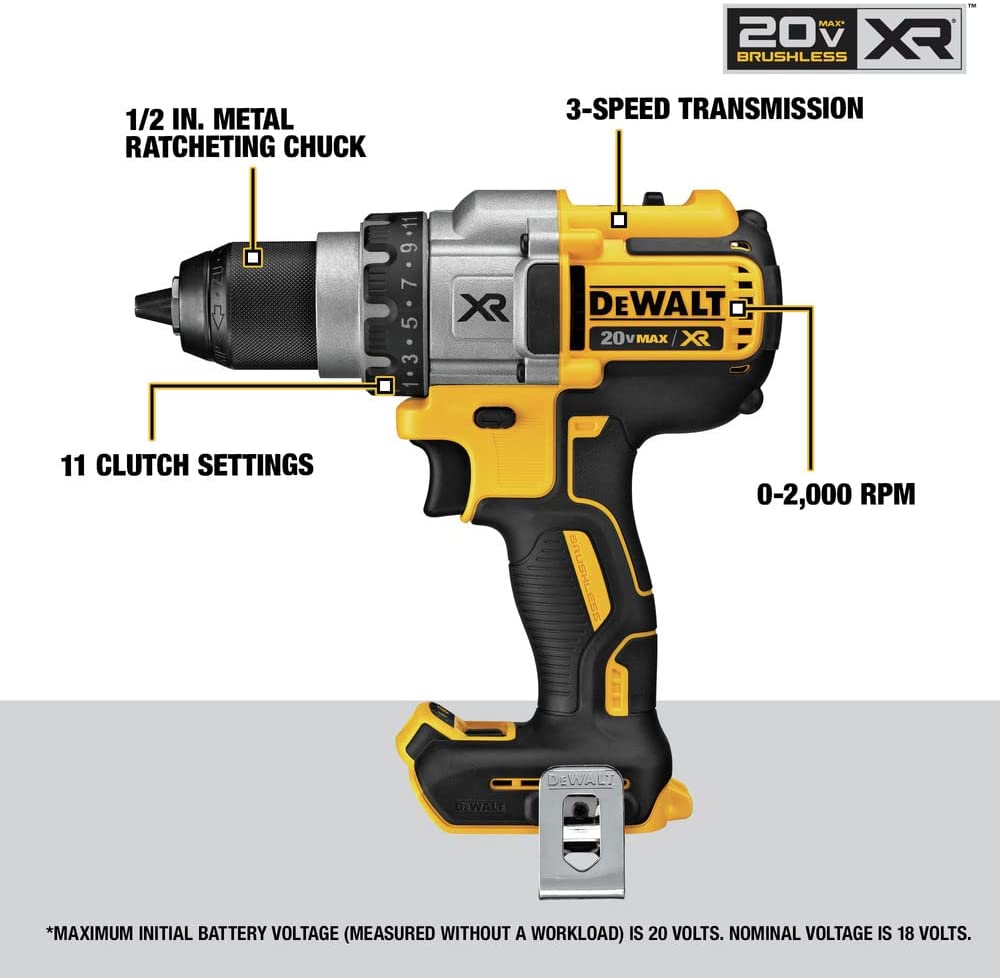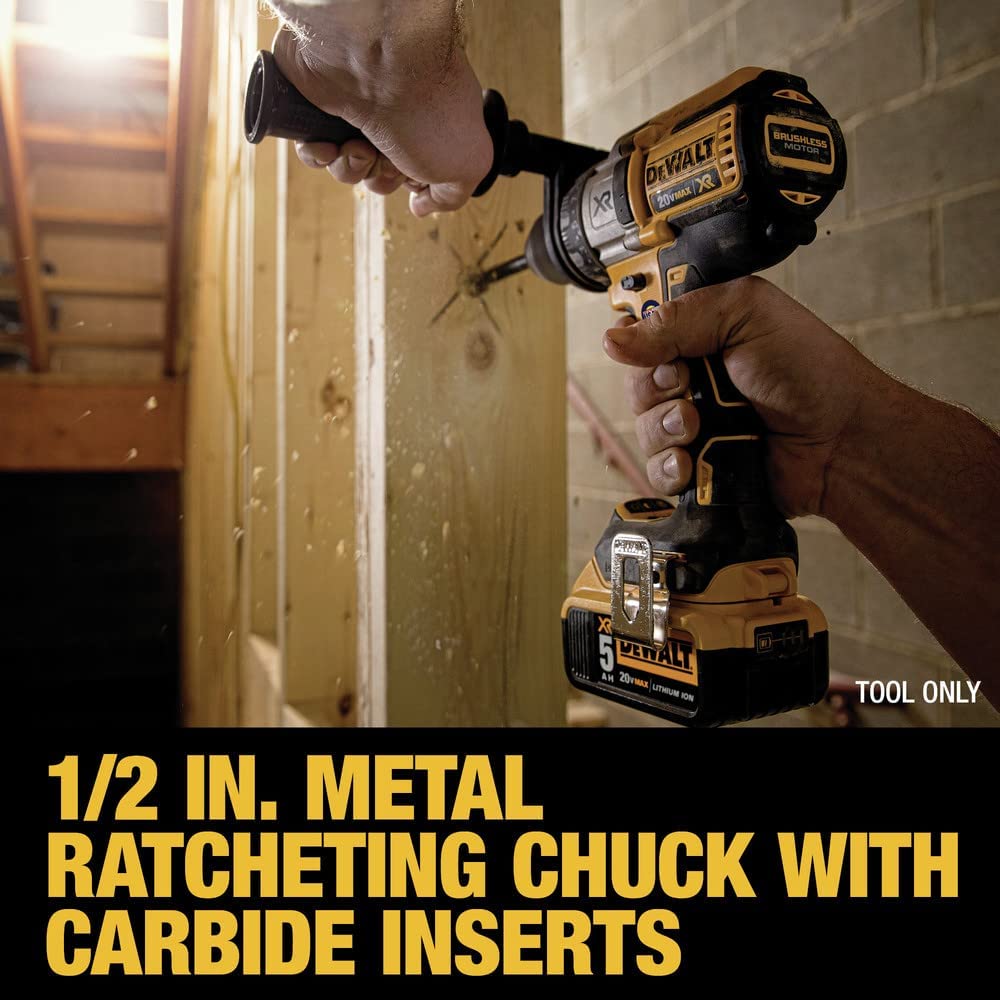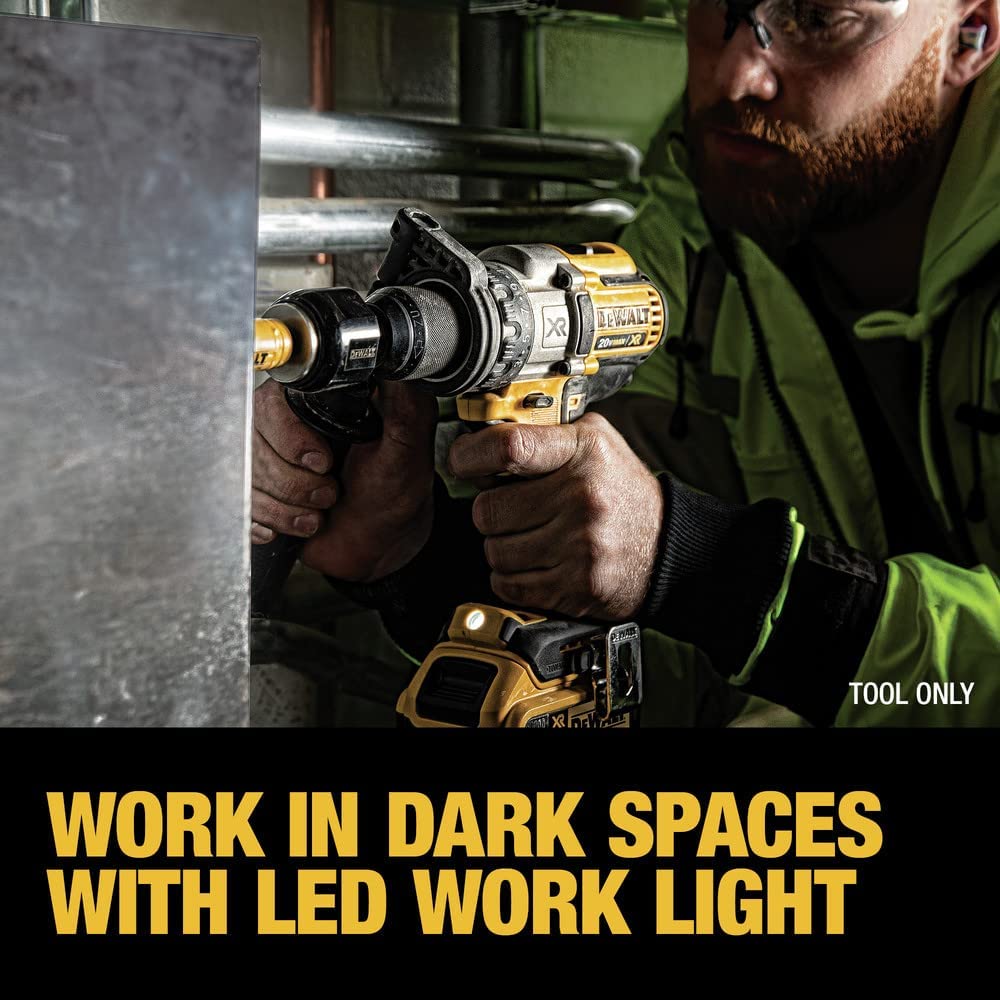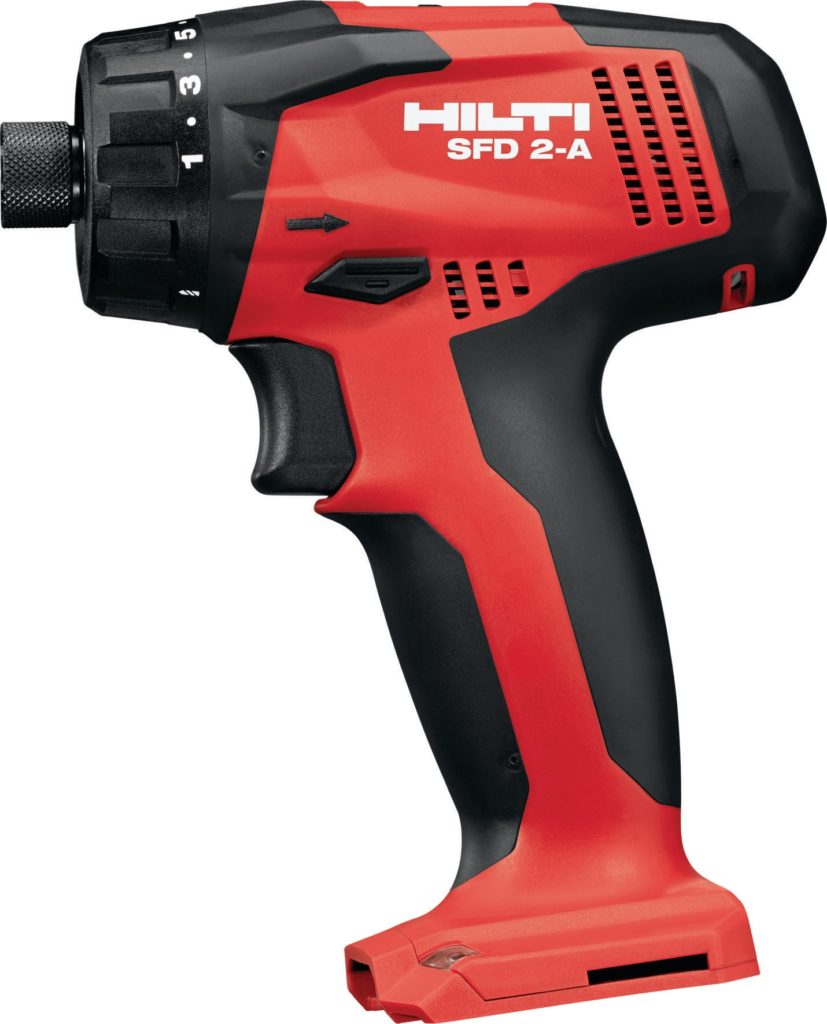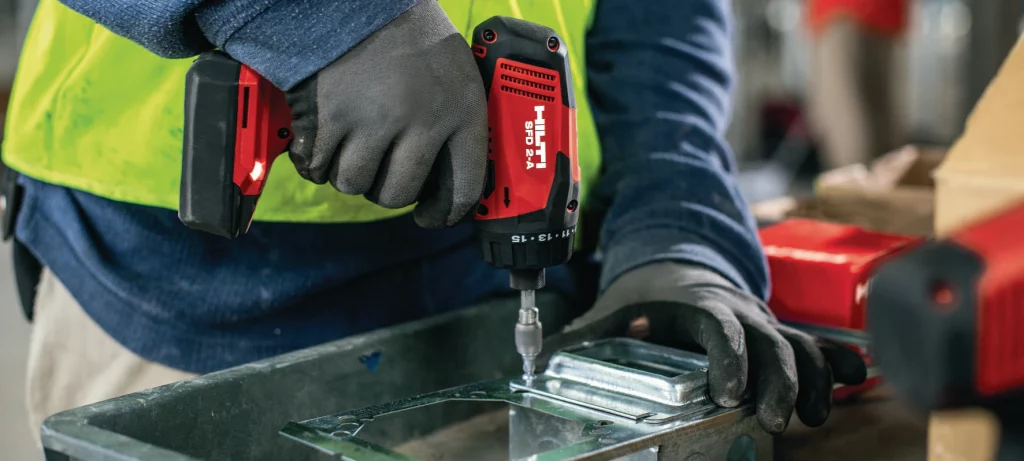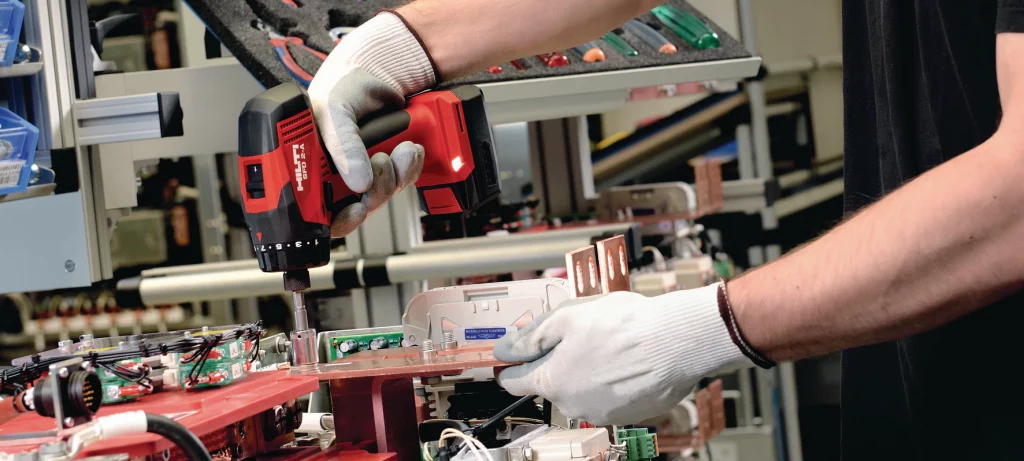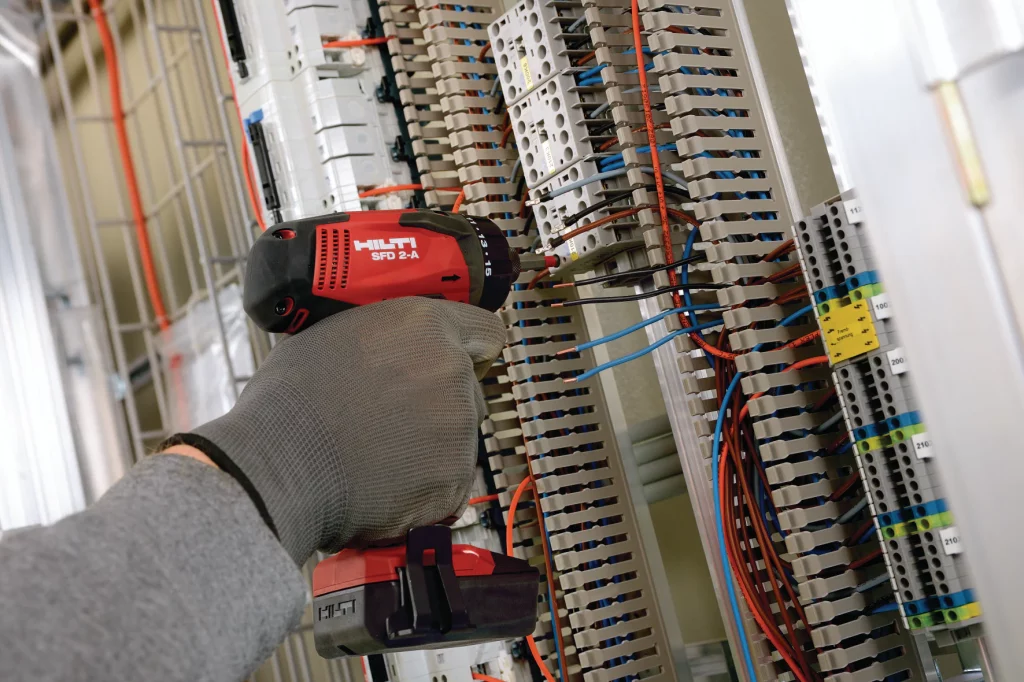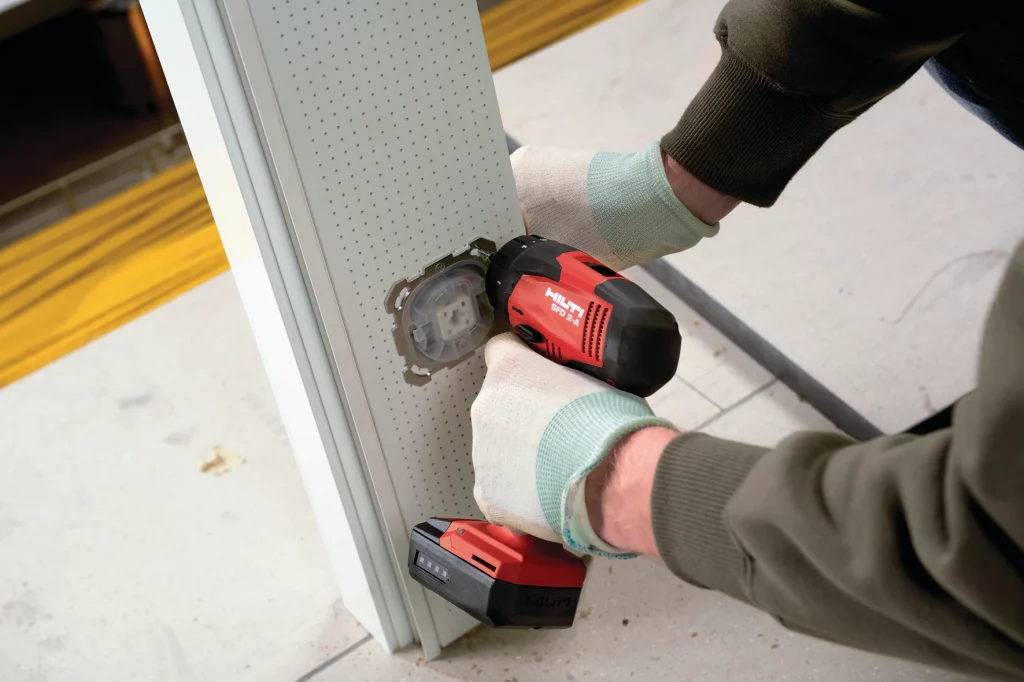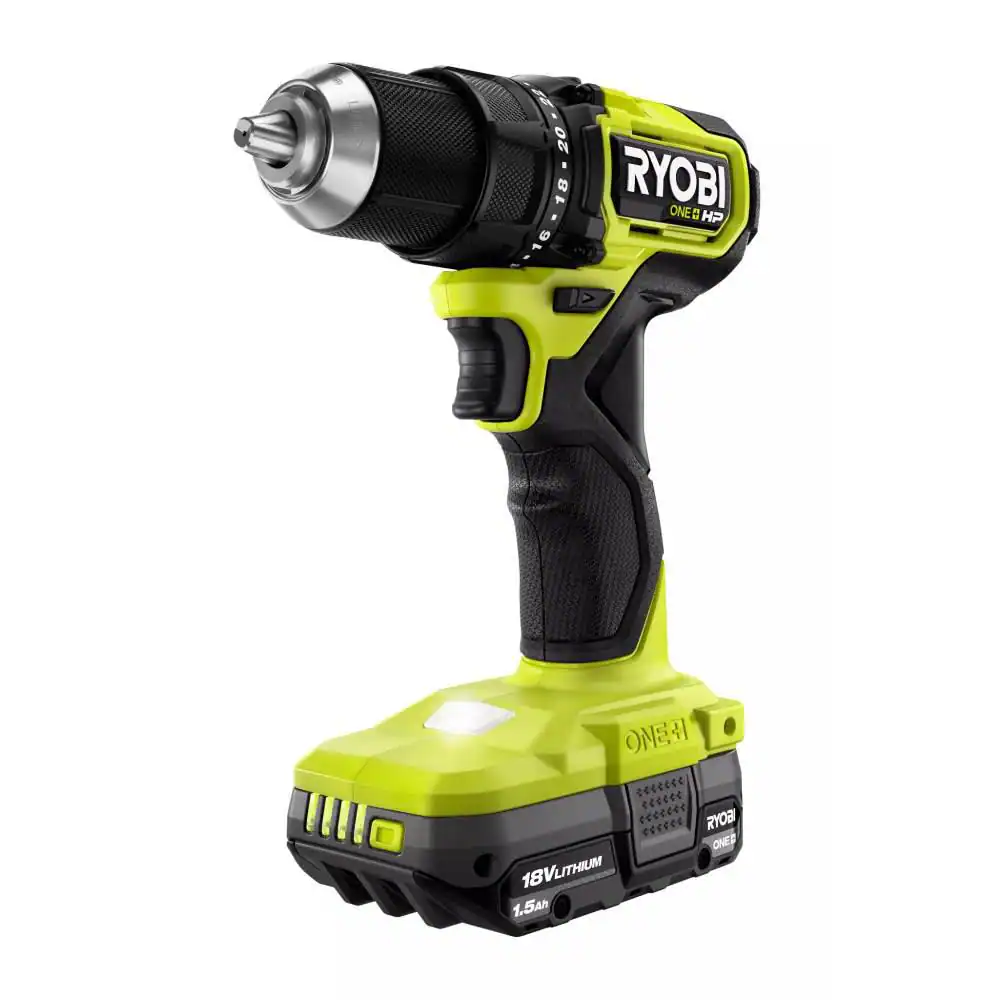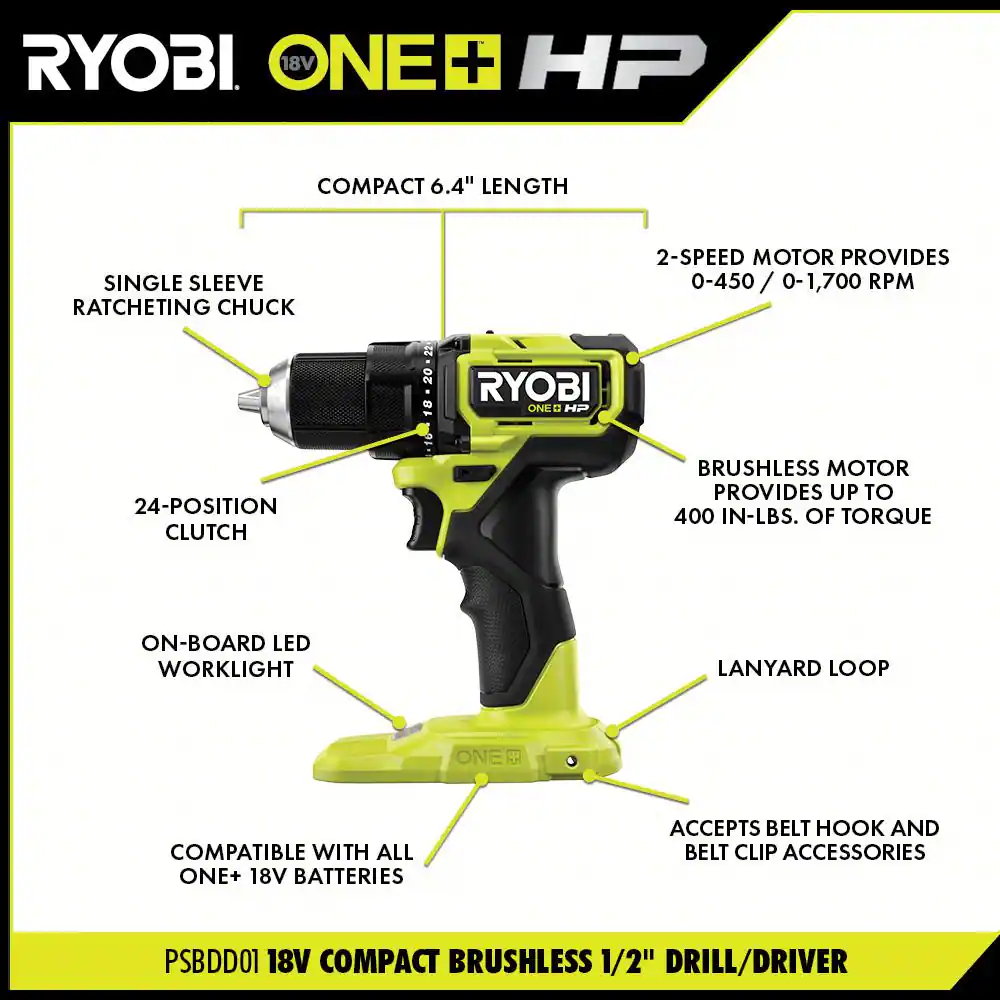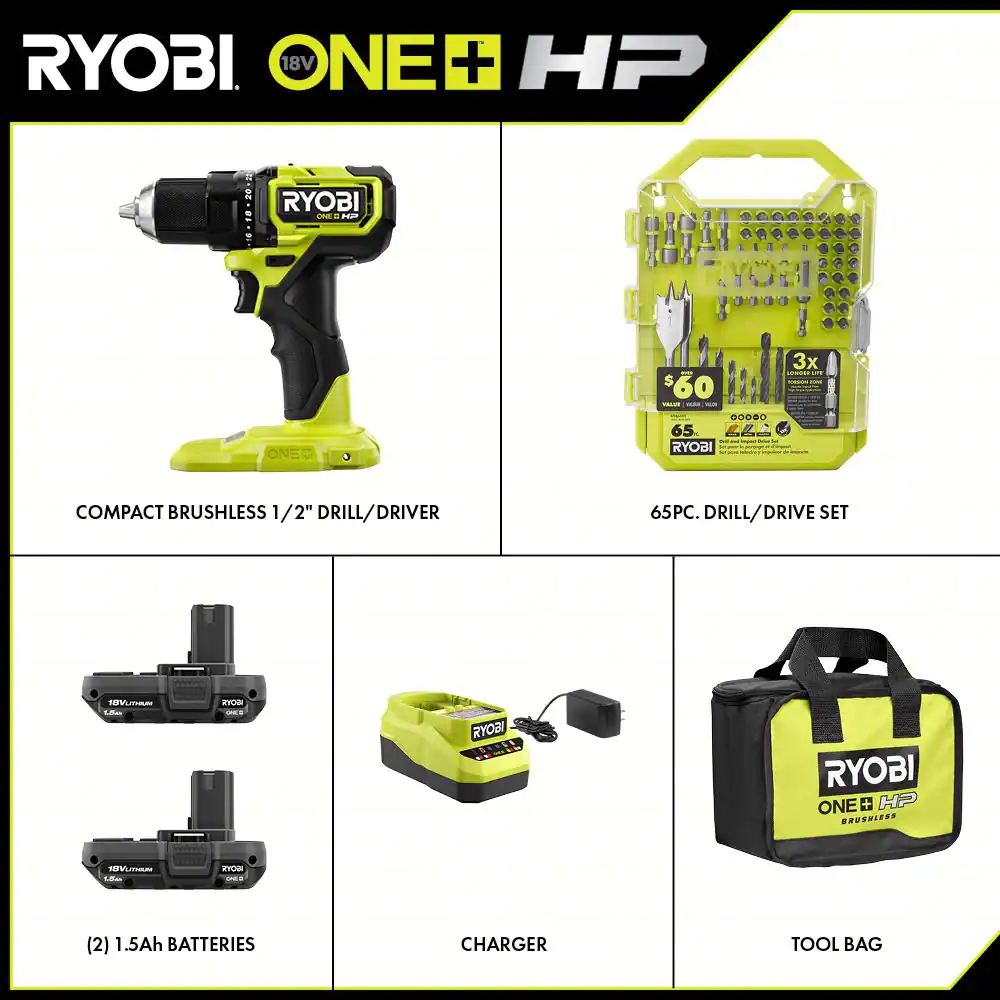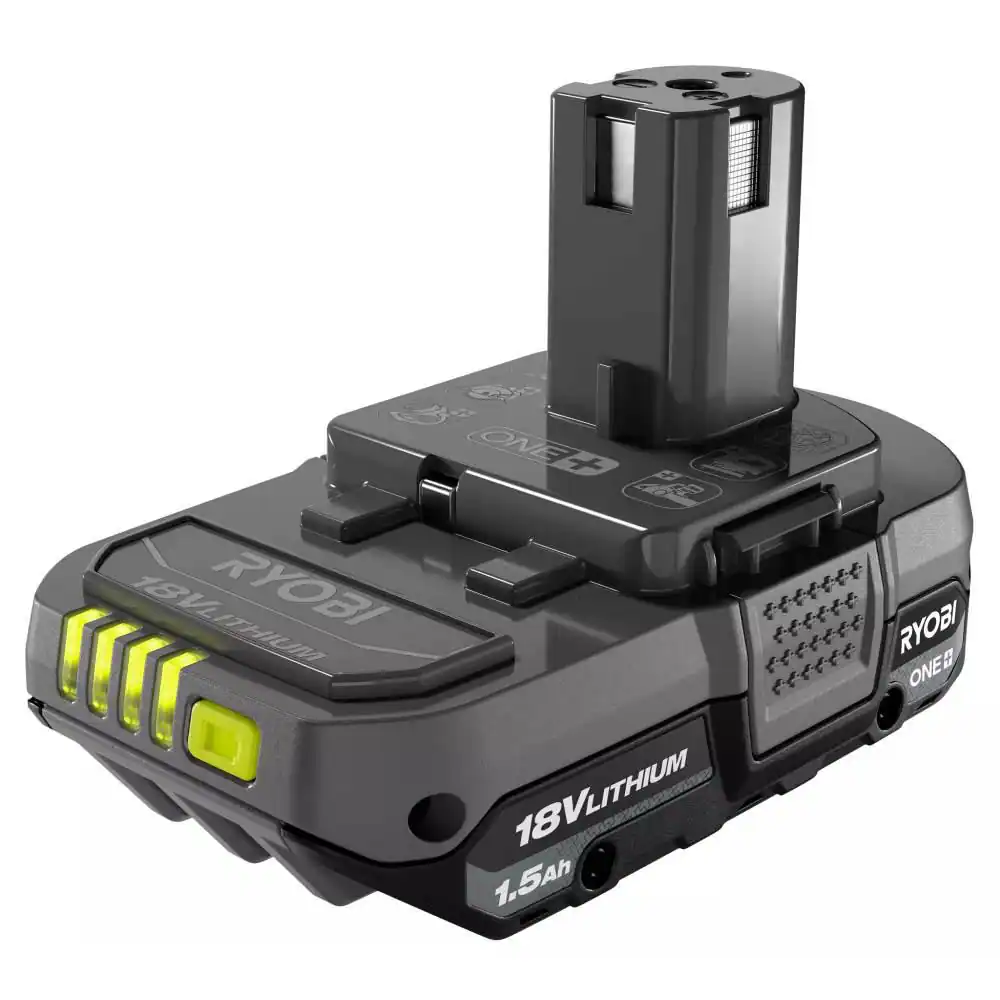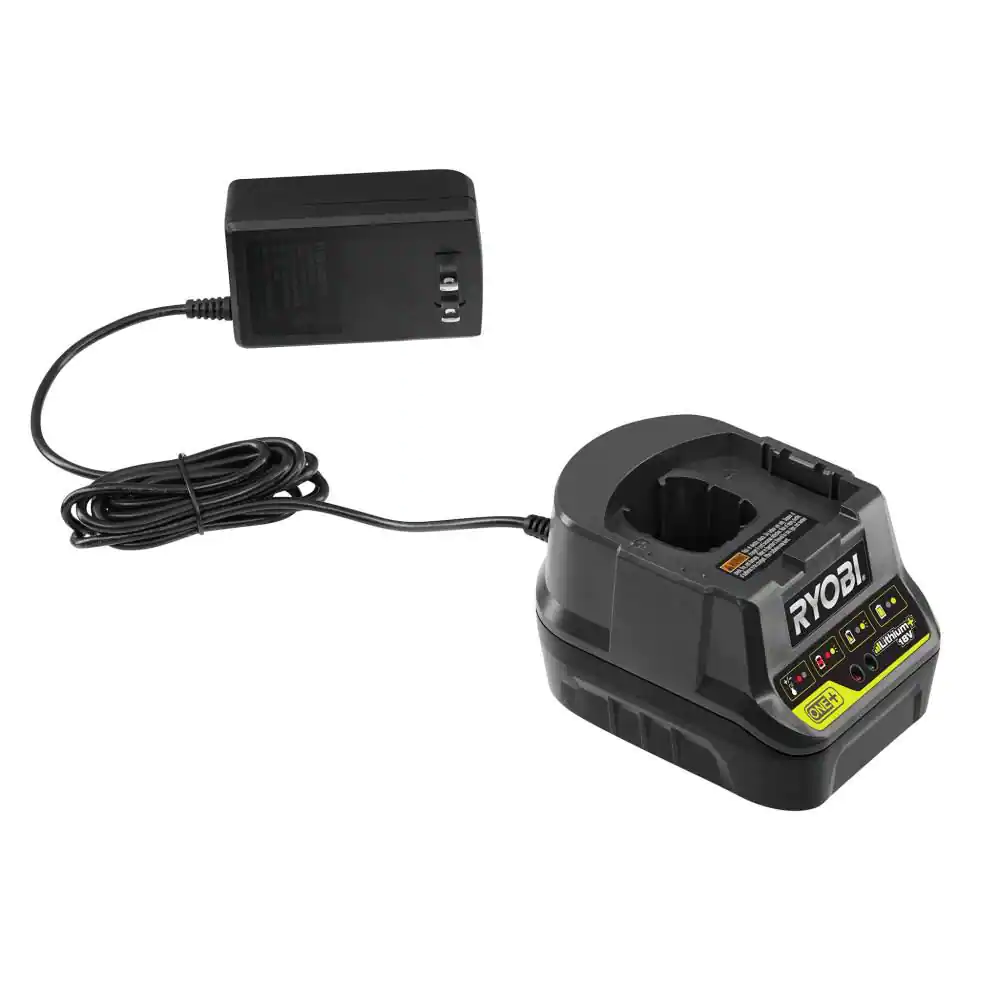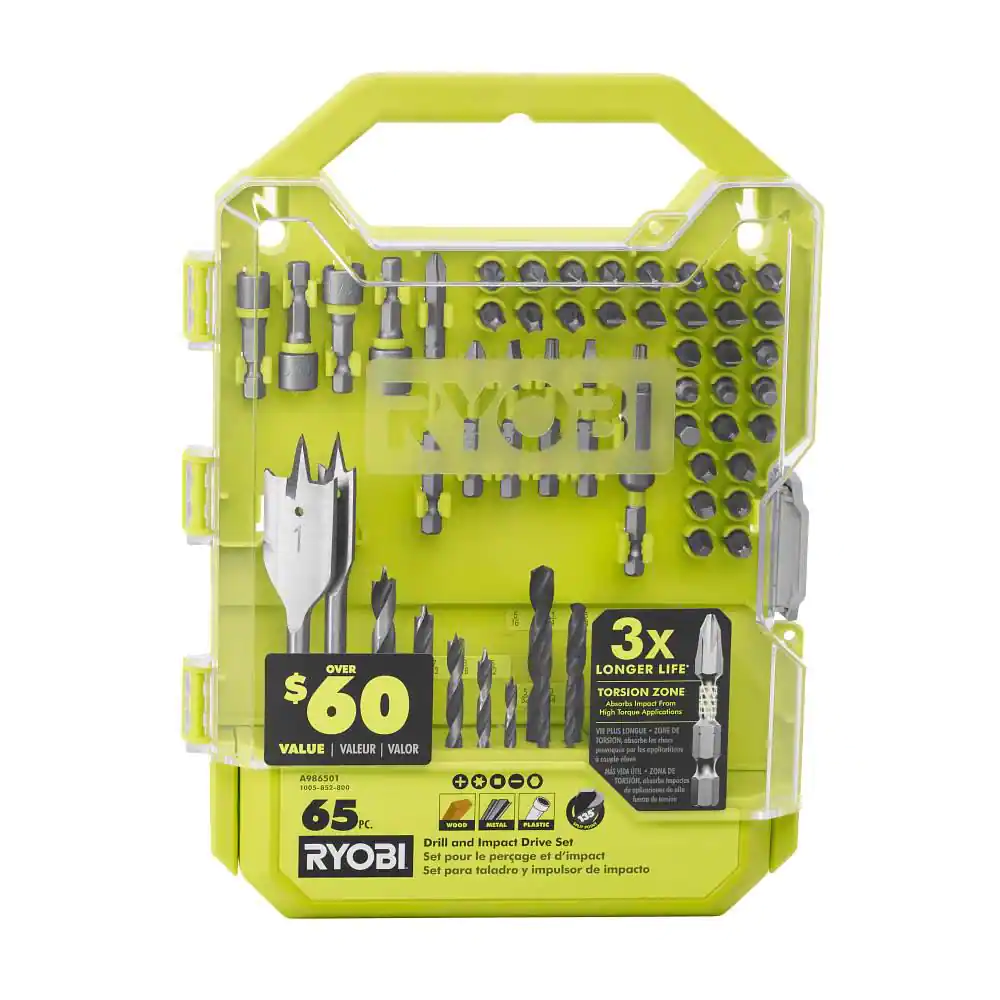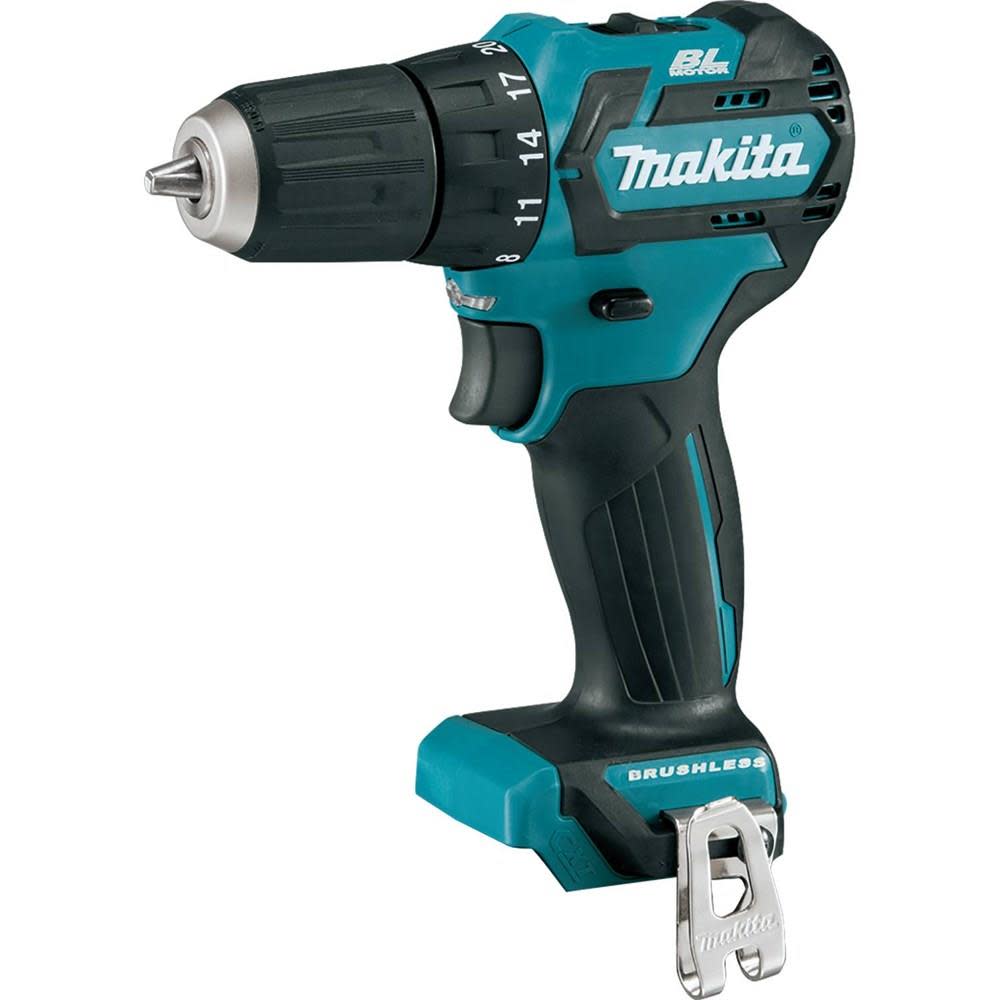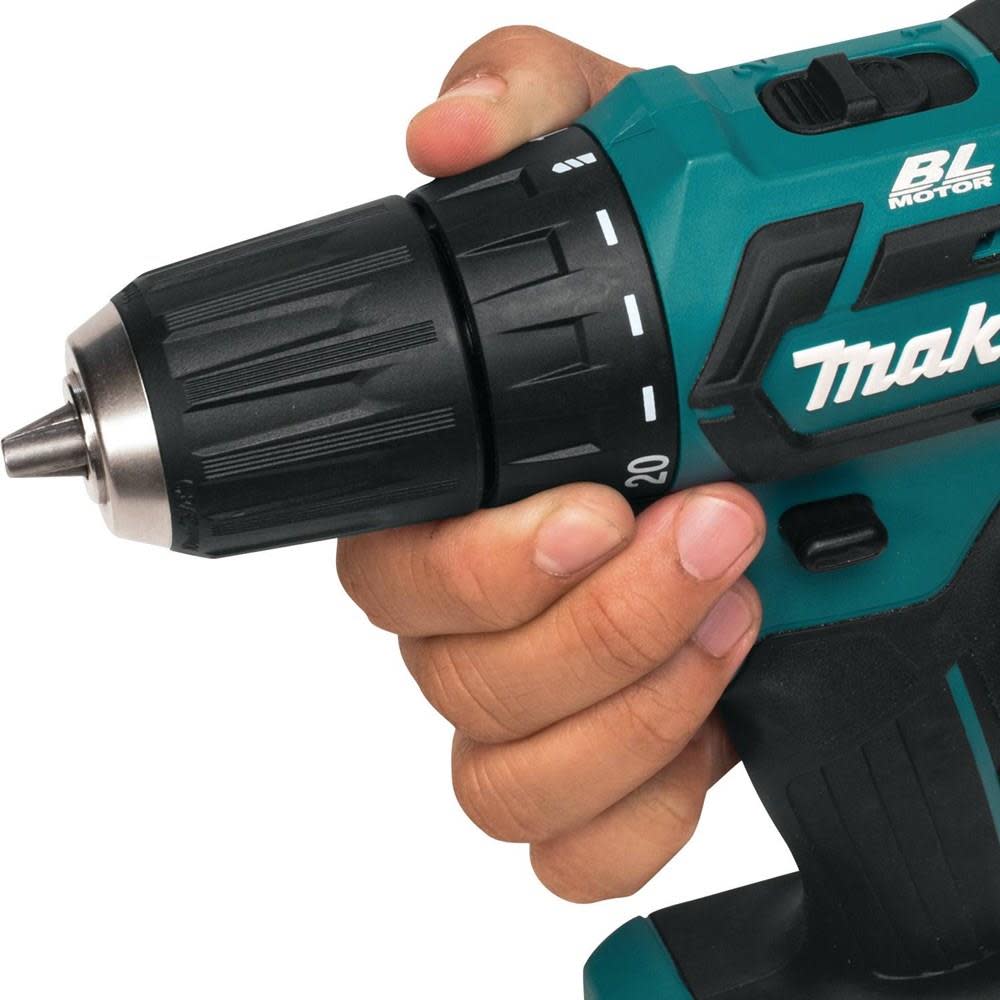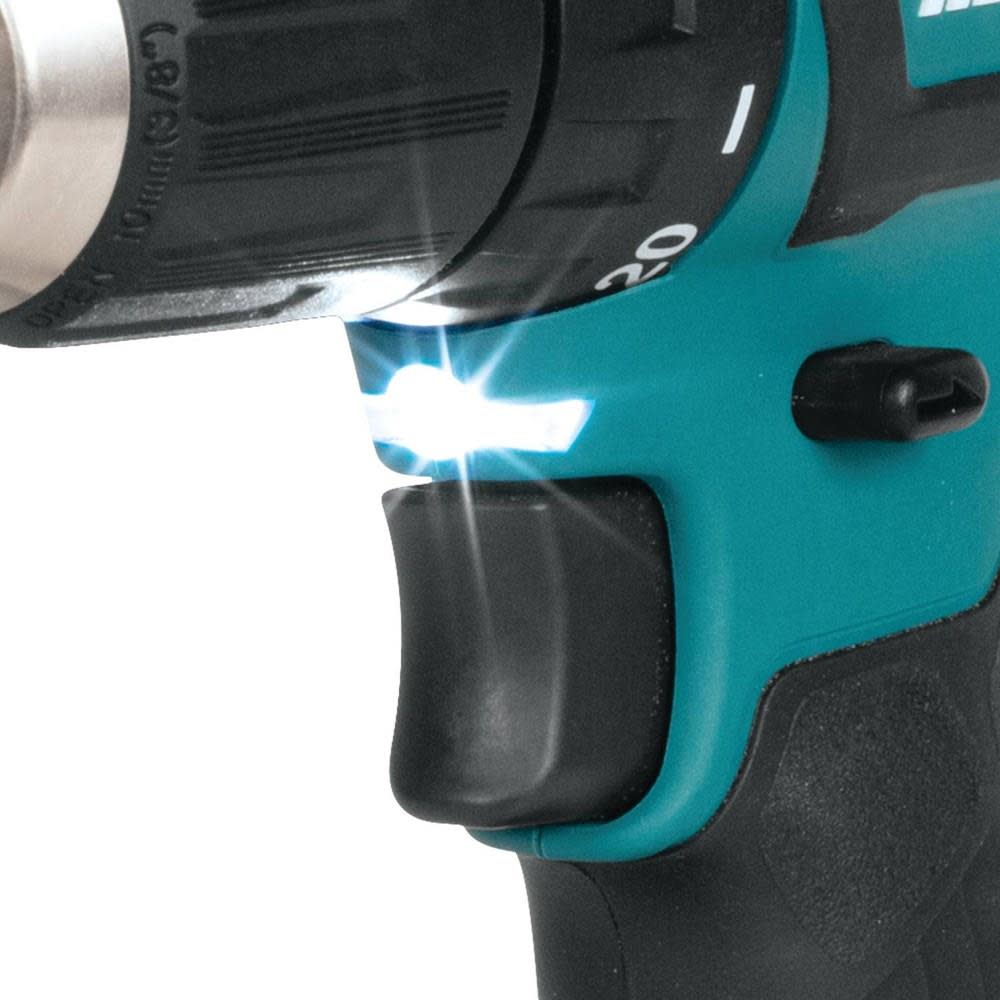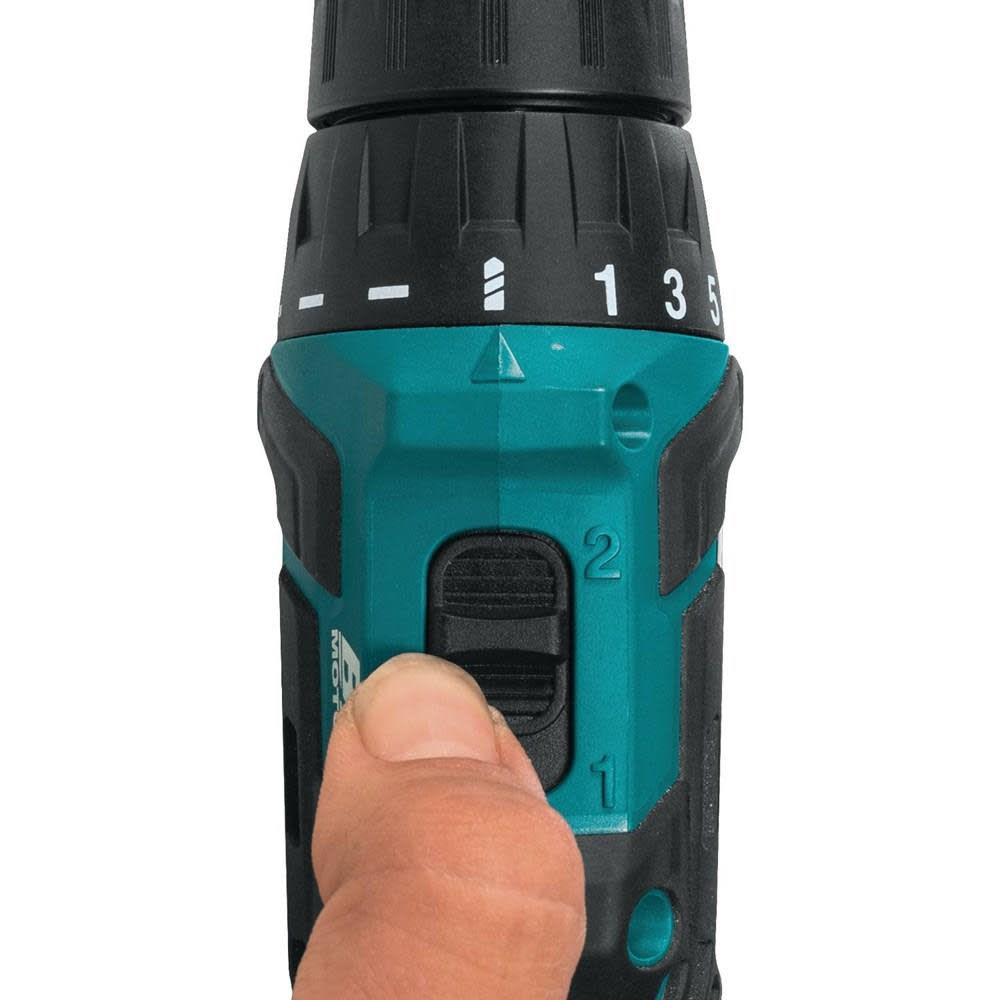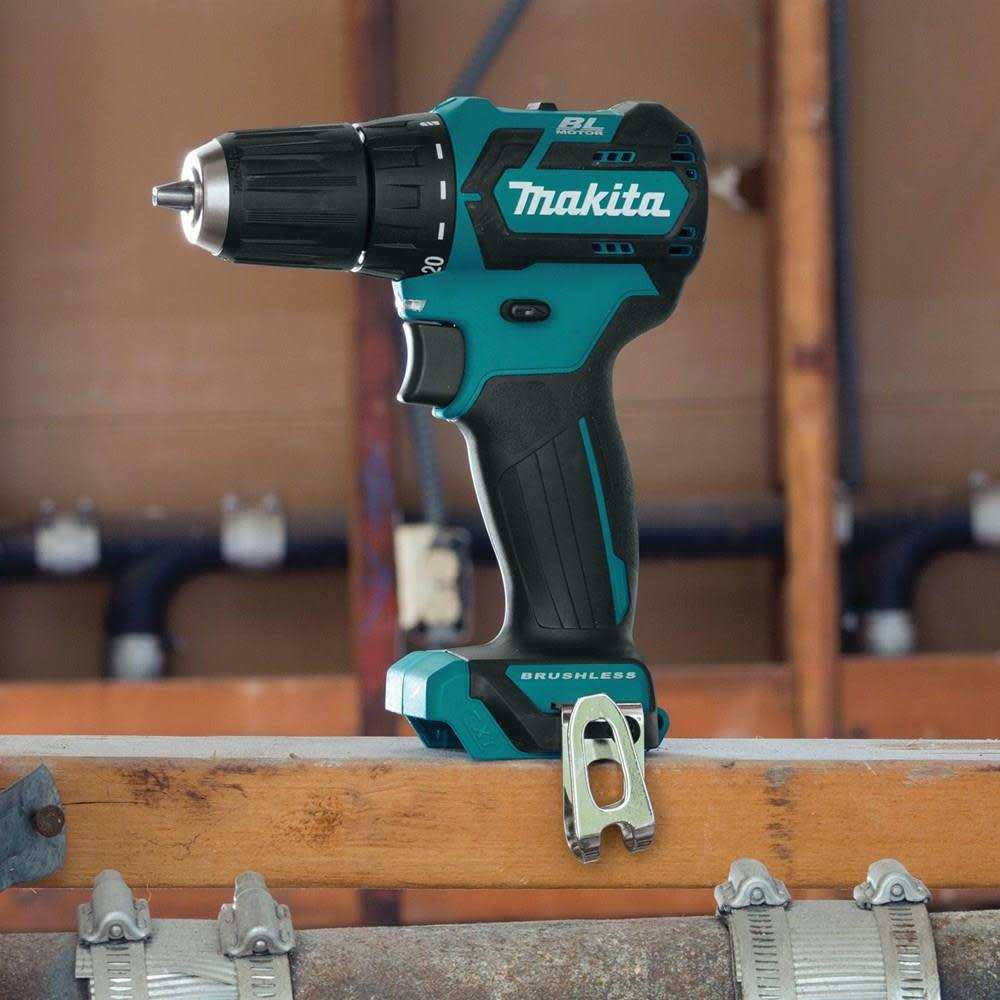Power cords are a major hassle when it comes to managing construction projects, which is why cordless power tools have become so popular. If you’re looking for your next drill, it makes sense to consider a cordless drill option.
But which one should you choose? This cordless drill buying guide will cover the different types of cordless power drills, what to look for in a cordless drill, and five of the best models on the market.
What Are the Advantages of Cordless Drills?
The cord-free nature of these tools gives them three major advantages compared to other kinds of drills:
No Annoying Cords
The most obvious issue with corded drills is the hassle of dragging that cord around with you. If you’re moving around, cords can easily get tangled on furniture, ladders, and other people. Power cords can also pose a tripping hazard, making your work area more dangerous for everyone. Cordless drills don’t have these issues because they run on batteries. The battery charger can be kept somewhere tidy and out of the way and keep power cords from bothering anyone.
More Freedom of Movement
Another issue with a cord is that it inherently limits your range of motion. If you get to the end of the cord, you need to either unplug and replug it into a new outlet, or you need to find a proper (and long) extension cord. Cords can also make it harder to go around corners. If you need to drill somewhere without power outlets, corded drills are useless. A cordless drill lets you drive screws or make holes wherever you happen to be.
More Flexibility
Cordless tools are also better for tight spaces. You don’t have to try to maneuver the cord into that duct or closet with you. More importantly, the cord won’t prevent you from holding the drill at the necessary angle. You can simply use your compact cordless drill at whatever angle you need for your tight space and get on with your work.
How Does a Cordless Drill Differ From Other Drills?
There are two main types of drills: corded and cordless. The difference between the two is how they channel the necessary operating power.
A corded drill can’t operate without being plugged into a power outlet. On one hand, that means the tool can be quite powerful without getting too heavy because it doesn’t need a battery. However, corded drills significantly limit where you can use them since you need to reach an outlet with the cord. In addition, the cord can get tangled when you’re trying to reach out-of-the-way places.
So how are cordless drills different from the alternative? Simple. Cordless tools offer you complete freedom. As long as you have a charged battery, you can use a cordless drill anywhere. There’s no need to mess around with power and extension cords.
The one downside to cordless drills is the battery. More powerful batteries are usually heavier, which means that a cordless drill with a long battery life will probably be heavier than an equally powerful corded drill. However, power cords can also become heavy, which may become cumbersome if you’re drilling somewhere high up. Either way, if you regularly need to use a drill in tight spaces or you simply dislike dealing with cords, a cordless drill is a great solution.
The 5 Best Cordless Drills
If you’re looking for a cordless drill, you have a lot of choices. However, you don’t have to sift through every single one to find the model that suits your needs. Check out these five cordless drills to choose the one that works best for you. Whether you need something powerful or something compact and lightweight, one of these tools is sure to fit the bill.
DeWalt DCD701B 12V Max Li-Ion Cordless 3/8” Drill Driver
DeWalt DCD701 12V Max Li-ion Cordless 3/8″ Drill Driver Description and Specifications
This compact DeWalt drill has a barrel just under 6″ long and a weight of 5 lbs. with its battery. The keyless chuck can hold bits of up to 3/8″, and the tool has two transmission speeds that allow for different torque settings. The drill features a built-in single LED light for better visibility in tight spaces.
| Specification | Value |
|---|---|
| Battery Amp Hours / Amperage | Not specified |
| Battery/Charger | Not included |
| Chuck Type | Ratcheting |
| Motor Type | Brushless |
| Torque | Not specified |
| Max RPM | 1500 |
| Weight (pounds) | 2.3 lbs. |
| Max Watts | 300W |
| Warranty | 3-years limited |
Why the DeWalt DCD701 12V Max Li-ion Cordless 3/8″ Drill Driver Is Great
DeWalt is known as one of the best power tool brands in the world. All DeWalt drills are made in America. This drill in particular is an excellent choice for household projects or operating in tight spaces. It’s small enough to fit in ducts or underneath counters without getting in your way. It’s also lighter than most DeWalt drills, making it easier to use for long periods of time.
While the DeWalt DCD701 isn’t for constant heavy-duty contractor work, it’s a solid choice for anyone who wants a long-lasting drill for routine tasks. It’s also short enough in the barrel that it can take the place of an angle drill in many scenarios.
Pros
- Lightweight
- Short
- Two-speed transmission for flexibility
- Fast charging
Cons
- Less power than alternatives
- Shorter battery life
- Batteries not included
Additional Resources
DeWalt DCD991B 20V Max Li-ion Cordless 1/2″ Drill Driver
DeWalt DCD991B 20V Max Li-ion Cordless 1/2″ Drill Driver Description and Specifications
The DeWalt DCD991B 20V Max is a heavy-duty cordless drill designed for serious use. The 20-volt brushless motor is ideal for powering through hard surfaces. The three-speed, all-metal transmission lets you customize your torque settings at a high level of precision. It will also stand up to years of heavy usage. The drill features a ratcheting nitrocarburized metal chuck and an LED spotlight with automatic shutoff to make it easier to work in dim spaces.
| Specification | Value |
|---|---|
| Battery Amp Hours / Amperage | No battery |
| Battery/Charger | Tool only |
| Chuck Type | Keyless |
| Tool Bag | Not included |
| Motor Type | XR Brushless |
| Chuck Size | 1/2″ |
| Max RPM | 2,000RPM |
| Weight (pounds) | 4.25 lbs. |
| Extra Features | LED Light, Variable speeds |
| Certifications | CSA-Listed |
| Warranty | 3-years limited |
Why the DeWalt DCD991B 20V Max Li-ion Cordless 1/2″ Drill Driver Is Great
At the other end of the DeWalt spectrum, the DeWalt DCD991B 20V Max is everything a contractor might need out of a drill. This tool is built to last, with an all-metal transmission and brushless motor that can withstand heavy use. DeWalt claims that the drill has an overall life span of up to 57% longer than brushed and non-metal transmission tools.
This drill isn’t a lightweight, though. The 11″ barrel and 10 lb. weight make it a little much for small tasks. Still, if you’re looking for a big drill for big tasks, the DeWalt 20V Max can get the job done.
Pros
- Powerful
- Large chuck size
- All-metal 3-speed transmission
Cons
- Large and heavy
- large batteries take time to charge
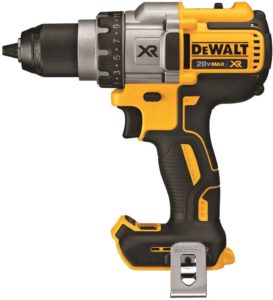
DeWalt DCD991B 20V Max Li-ion Cordless 1/2″ Drill Driver
Additional Resources
Hilti SFD 2-A 110V Li-ion Cordless 1/4″ Drill Driver
Hilti SFD 2-A 110V Li-ion Cordless 1/4″ Drill Driver Description and Specifications
This compact hammer drill is a unique take on masonry drills. The drill has a barrel of just 6″ and weighs only 2 lbs. without the battery. It has a low-power motor of just 12 volts, but it still accomplishes torque of up to 301 in-lbs. It has two torque settings, giving you extra control over how the drill performs.
| Specification | Value |
|---|---|
| Battery Amp Hours / Amperage | No Battery |
| Battery/Charger | Not included |
| Chuck Type | Quick-release chuck |
| Voltage | 12V |
| Motor Type | Brushless |
| Torque | 186 in-lb. (soft joint); 301 in-lb. (hard joint) |
| Transmission | 2 transmission settings, 15 speeds, 30 total |
| Weight (pounds) | 1.6 lbs. |
| Warranty | 2-years wear and tear |
Why the Hilti SFD 2-A 110V Li-ion Cordless 1/4″ Drill Driver Is Great
One of the lesser-known tool brands, Hilti has been becoming more popular among enthusiasts as a reliable alternative to larger and more expensive brands. The Hilti SFD 2-A hammer drill is an excellent option if you’re looking for a compact hammer drill that gets the job done. While it’s not the most powerful, it’s easy to maneuver in tight spaces and still manages some impressive torque.
This is another option that can sometimes take the place of a right-angle drill. While its barrel is a little longer than the DeWalt 12-volt drill above, it’s still quite compact. It’s easy to use in vents, under cabinets, and even inside furniture.
If you’re not satisfied with your Hilti drill, you can also take advantage of the brand’s excellent warranties. Unlike most other tool brands, Hilti has a multi-decade warranty policy. You can have Hilti drills repaired for general wear and tear for up to two years, and the workmanship and materials are guaranteed for 20 years.
Pros
- Lightweight
- Compact
- Hammer drill
- Excellent warranty
Cons
- Low voltage
- Low torque
- Small chuck
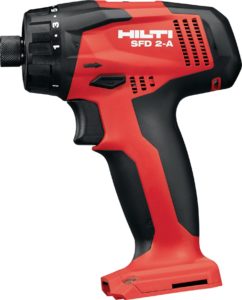
Hilti SFD 2-A 110V Li-ion Cordless 1/4″ Drill Driver
Additional Resources
Ryobi PSBDD01K 18V Li-ion Cordless 1/2″ Drill Driver
Ryobi PSBDD01K 18V Li-ion Cordless 1/2″ Drill Driver Description and Specifications
Lightweight yet heavy-duty, the brushless Ryobi PSBDD01K measures 6.4 in long, making it 20% lighter and 30% more compact than the brushed version. This makes the Ryobi PSBDD01K great for overhead applications, particularly for those that involve tight workspaces.
| Specification | Value |
|---|---|
| Battery Amp Hours / Amperage | 1.5 Ah |
| Battery/Charger | Battery and Charger Included |
| Tool Bag | Included |
| Motor Type | Brushless |
| Torque | 400 |
| Max RPM | 1700 |
| Weight (pounds) | 2.46 lbs. |
| Extra Features | Compact, Keyless Chuck, LED Light, Variable Speed |
| Certifications | UL Listed |
| Warranty | 3-years (tool) |
Why the Ryobi PSBDD01K 18V Li-ion Cordless 1/2″ Drill Driver Is Great
The Ryobi PSBDD01K drill driver combines versatility with durability. With a brushless motor that can deliver up to 400 in./lb. of torque, this tool can drive and drill through some tough materials. Highly portable, it can be used in a variety of situations, such as building furniture and planter boxes. It also comes with an LED work light so you can work at night and in dimly-lit areas.
The PSBDD01K also comes with a 1/2″ single-sleeve chuck designed for quick bit changes. The 24-position clutch allows for optimal control while driving and drilling and also includes two speeds (0 to 450 RPM and 0 to 1,700 RPM).
Pros
- Interchangeable battery
- LED work light
- Lightweight and compact
- Great for overhead applications and tight spaces
- Single-sleeve ratcheting chuck with a durable grip for quick bit changes
Cons
- Not the best for heavy-duty applications, such as those involving masonry or metal
- The trigger may respond irregularly, making it difficult to drive screws accurately
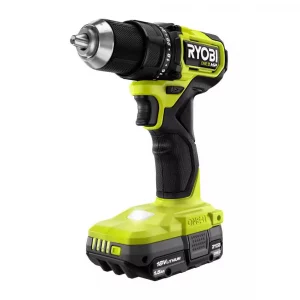
Ryobi PSBDD01K 18V Li-ion Cordless 1/2″ Drill Driver
Additional Resources
Makita FD07Z 12V Li-ion 3/8″ Drill Driver
Makita FD07Z 12V Li-ion 3/8″ Drill Driver Description and Specifications
This compact drill weighs just 2.3 lbs. with the battery and has a barrel length of 6.1″. Its brushless motor operates at 12 volts and can put out up to 350 watts and 280 in-lbs. of torque. The drill can accept chucks up to 3/8″ and operates using a keyless chuck to make it easier to drive into stubborn materials.
| Specification | Value |
|---|---|
| Battery Voltage | 12V |
| Battery/Charger | Not included |
| Chuck Type | Keyless |
| Tool Bag | Not included |
| Motor Type | Brushless |
| Torque | 280 in.-lbs. |
| Max RPM | 1,500RPM |
| Weight (pounds) | 2.3 lbs. |
| Certifications | UL-Listed |
| Warranty | 3-years limited |
Why the Makita FD07Z 12V Li-ion 3/8″ Drill Driver Is Great
Makita drills are tied with DeWalt in terms of popularity. It’s one of the most popular power tool brands globally, and for good reason. Makita drills are known for their durability and quality, even in the lower-power offerings like this one.
The Makita FD07R1 is the lightest power drill on this list. That alone makes it an interesting option if your arms grow tired during long projects. It’s a compact drill that’s quite powerful for its size. It’s perfect for driving holes above your head, handling ceiling repairs, or anything else that requires long periods of work. While it’s not suited for masonry, it has a long battery life and fast charge time that can keep less power-intensive projects going smoothly.
Pros
- Lightweight
- Compact
- Long battery life
- Fast charge time
Cons
- Relatively low power
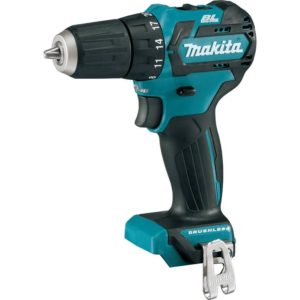
Makita FD07Z 12V Li-ion 3/8″ Drill Driver
Additional Resources
How To Choose the Best Cordless Model for You
Choosing the right cordless drill for your needs doesn’t have to be hard. While there are hundreds of cordless drills on the market, you can narrow down your choices by considering what matters to you. This cordless drill buying guide should make it easier to consider some of the following elements:
- Barrel length
- Weight
- Battery life
- Charging time
- Power output
- Torque
- Speed settings
- Durability
- Warranty coverage
Some of these issues likely matter more to you than others. Once you know what’s most important to you, you can pick out the tool that fits your needs, preferences, and budget.
Cordless Drill FAQs
Standard drills are shaped similarly to guns — the drill bit is at the end of the barrel and lies parallel to your arm. Angle drills have the drill bit pointed in any direction other than perpendicular. They’re shaped more like a ratcheting wrench with a motor and battery attached. They use a complex series of gears to translate the motion of the engine into perpendicular rotation.
The most common kind of angle drill is a right-angle drill. These power tools are used in extremely tight spaces because they don’t require the entire drill motor to fit in the same space as the drill bit.
The battery life of a cordless drill depends on three main factors: the amperage of the battery, the voltage of the motors, and the wattage used to operate it. High-amperage batteries store more electricity in general. However, high-voltage motors use more energy, as do high speed and transmission settings on a drill.
A 20-volt drill with a 5-amp battery operating at 300 watts should last about three hours, but the exact battery life depends on the drill in question. In general, you should expect your battery to hold a charge for a year of no use. Power drill batteries should remain powerful for three to five years of regular use.
Proper storage can help extend this life. Storing batteries at full charge instead of mostly empty can help them retain a charge longer. Using the battery regularly will also help it last longer. Finally, you can store batteries in the fridge, separated from the power tool, to keep heat from damaging them and reducing their life span.
Yes, some cordless drills can drive holes in tough materials like masonry and metal. However, it has to be the right type of drill or drill bit. Some very powerful standard drills can handle light masonry tasks with the addition of a masonry bit, which is coated in special substances that make it easier to cut through concrete or other masonry.
There are also power drills designed to handle hard materials. Known as hammer drills, they have special features that make it easier to get through hard substances. The drill operates like normal, but there’s an extra component within the device that causes it to “hammer” against the surface. This makes it easier to chip out the masonry in a tight hole.
